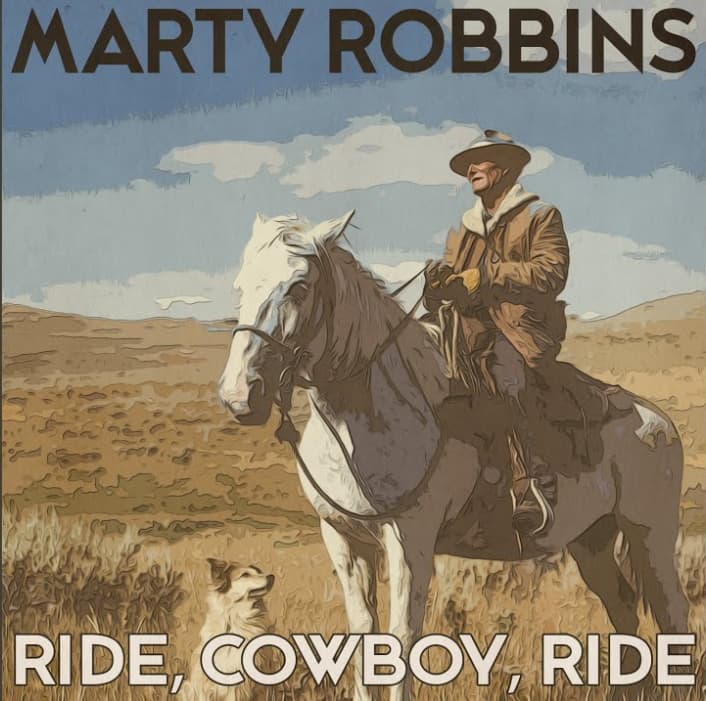
Marty Robbins – “The Little Green Valley”: A Wistful Lament for Home and Mortal Rest
There are songs, and then there are memories set to music, the kind that settle deep in your soul like the dust of a long-forgotten trail. Marty Robbins‘ tender, deeply resonant rendition of “The Little Green Valley” is most certainly the latter—a haunting echo of a simpler time and an almost aching sense of homesickness that transcends mere geography. It’s a song that speaks volumes to those of us who carry the weight of years and the inevitable nostalgia for places and people that time has gently, or perhaps cruelly, put out of reach.
Released on his landmark 1959 album, Gunfighter Ballads and Trail Songs, “The Little Green Valley” found its home among legendary tracks like “El Paso” and “Big Iron.” While it may not have soared to the dizzying heights of those blockbuster hits on the Billboard charts as a standalone single—Gunfighter Ballads itself was a massive commercial and critical success, peaking at number 6 on the Billboard 200 and becoming a touchstone of the Western genre—it remains a vital, emotionally essential piece of the album’s tapestry. It acts as a quiet, reflective counterpoint to the more dramatic narratives of gun smoke and doomed romance, providing a moment of profound, existential longing.
The true historical heart of the song, however, lies not with Robbins but with the venerable country and folk artist Carson Robison, who originally wrote and recorded it. Robbins, a master interpreter of Western and Country themes, took Robison’s composition and imbued it with his own unique, warm baritone and the superb, understated production characteristic of the era. The song’s composition, credited to Carson Robison, speaks to a rich, enduring tradition of trail songs and cowboy laments that long predated the slicker Nashville sound. This choice by Marty Robbins to include a traditional piece like this on a groundbreaking album solidifies his role not just as an artist, but as a preservationist of a vanishing American spirit.
The melody itself is gentle, almost a lullaby, perfectly suited to the somber, contemplative lyrics. But its story is where the true gravity lies. The song tells of a lonely wanderer—sometimes interpreted through fan theories as the eternal, undying narrator from the El Paso saga, cursed to roam—who is desperately yearning for a final resting place. The “Little Green Valley” is not just a pleasant valley; it is, symbolically, the grave, the final home. The narrator is tired, his “homesick heart would trouble me no more” if he could just rest there. This interpretation—that the valley is not just a place of peaceful rest but the cemetery—lends a powerful, almost spiritual significance to the yearning. It is a plea for mortality, for an end to the weary journey, and a return to the earth where a loved one may already be waiting at the “garden gate.”
For those of us who remember those old 78s and the crackle of a vinyl player, this song evokes a powerful, collective memory of an America that moved at a different pace. It’s the sound of a long drive through vast, quiet landscapes, of a weary heart contemplating the distance between ‘here’ and ‘home.’ It reminds us that life, like a trail ride, is full of hardship, and the deepest desire is often simply to return to the source, to the peace of that one, perfect, unchanging place. “The Little Green Valley” is a wistful, heartfelt meditation on the universal human desire for rest, permanence, and the comfort of finally being home—a sentiment that resonates all the more deeply as the years turn into decades, and the “Little Green Valley” seems to grow closer with every passing season. It’s a beautiful, melancholic masterpiece, a gentle reminder of the journeys we take and the haven we all eventually seek.